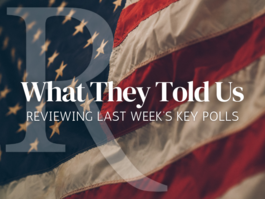36% Favor A Stop and Frisk Law Where They Live
Just over one-out-of-three voters favor a stop and frisk law like New York City’s and think such a law actually fights crime.
The New York City law allows police to stop and frisk anyone on the street whom they consider suspicious, but 50% of Likely U.S. Voters oppose having a stop and frisk law where they live. A new Rasmussen Reports national telephone survey finds that 36% favor such a law, while 13% are undecided. (To see survey question wording, click here.)
(Want a free daily e-mail update? If it's in the news, it's in our polls). Rasmussen Reports updates are also available on Twitter or Facebook.
The national survey of 1,000 Likely Voters was conducted on November 1-2, 2013 by Rasmussen Reports. The margin of sampling error is +/- 3 percentage points with a 95% level of confidence. Field work for all Rasmussen Reports surveys is conducted by Pulse Opinion Research, LLC. See methodology.
















